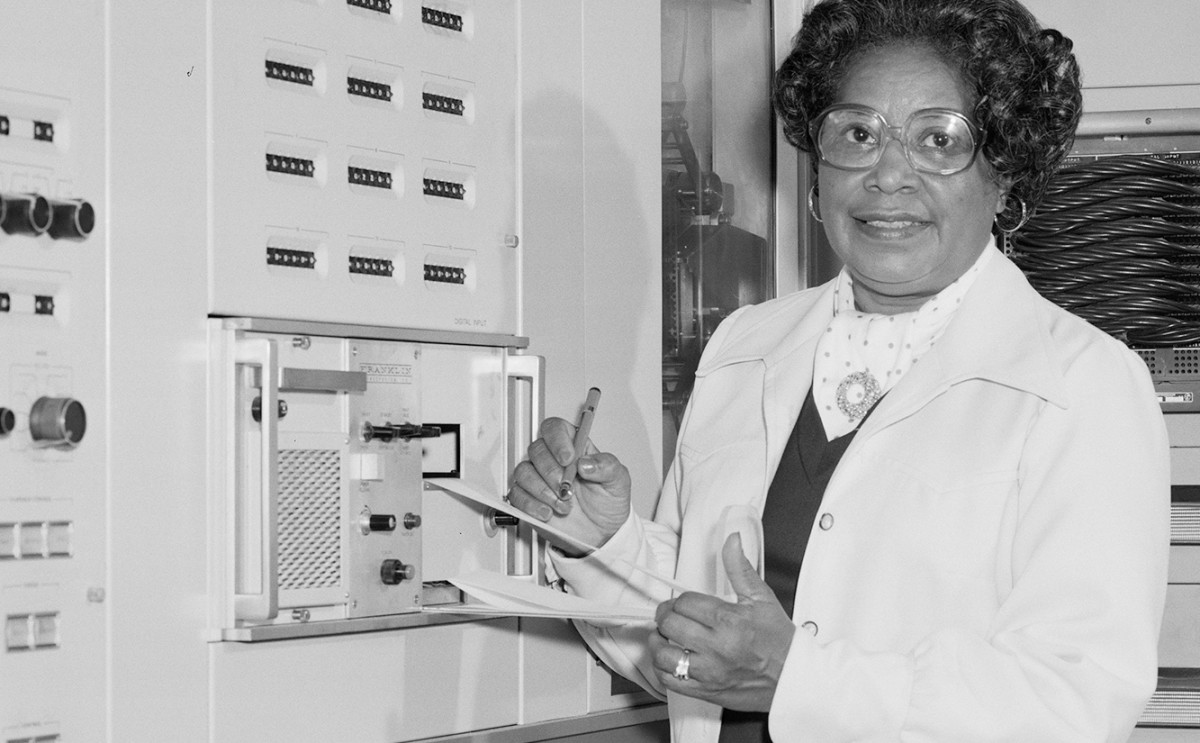Inspirational Black Pioneers Who Helped Shape Education
Making such an impact over the last few months, #BlackLivesMatter protests around the world have sparked a commitment among many individuals and organisations to educate themselves about Black history, heritage and culture this year.
Black History Month 2020 is a time to celebrate past contributions, present influences as well as future possibilities. Lots of institutions will recognise the work and efforts of significant black people across the world, throughout history and alive today.
The work of these pioneers can often go unnoticed or forgotten which is why Black History Month is a very significant time for everyone, regardless of race, to learn about the contributions they’ve made to society.
Check out these five fantastic figures who have all contributed to the field of Education and deserve some recognition.
- Mary Jackson (1921-2005)

In the 1970s, Mary Jackson helped the youths in the science club at Hampton’s King Street Community centre build their own wind tunnel and use it to conduct experiments. “We have to do something like this to get them interested in science," she said in an article for the local newspaper. "Sometimes they are not aware of the number of black scientists, and don't even know of the career opportunities until it is too late."
Though having to obtain special permission to take classes with white students. Mary, ultimately completed the necessary courses, to become the first black female engineer at NASA in 1958!
Jackson worked as an aerospace engineer for some 20 years. Much of her work centred on the airflow around aircraft. Despite early promotions, she was denied management-level positions, and in 1979 she left engineering and took a demotion to become manager of the women’s program at NASA. In that post, she sought to improve the opportunities for all women at the organization.
2. Oliver Brown (1918-1961)

Despite living just a few streets away from Sumner Elementary School, Oliver Brown's daughter was turned away and told to enrol in African-American school, two miles away. As a nine-year-old, it meant crossing train tracks and getting a bus alone. Her father, Oliver Brown, became one of 13 plaintiffs to bring a lawsuit against the Topeka Board of Education. In a case by families that argued that the idea of "separate but equal" violated African-American civil rights. The 1954 Brown vs. Board of Education Supreme Court ruling struck down legal segregation in US schools.
Oliver Brown claimed that schools for black children were not of equal quality and continued segregation violated the 14th amendment, promising equal protection for all people. In 1954 the court unanimously ruled that segregated schools were "inherently unequal" and had a "detrimental effect" on African-American children. It is believed this judgement inspired further activity which led to the Civil Rights movement of the 1960s.
3. Mary McLeod Bethune (1875-1955)

Mary McLeod Bethune was born to former slaves a decade after the Civil War. Mary became one of the most important black educators, civil and women’s rights leaders and government officials of the twentieth century. The college she founded set educational standards for today’s black colleges, and her role as an advisor to President Franklin Delano Roosevelt gave African Americans an advocate in government. She was an educator, an organizer, and a political activist, and opened one of the first schools for African American girls.
A champion of racial and gender equality, Bethune founded many organizations and led voter registration drives after women gained the vote in 1920
4. Inez Beverely Prosser (1897-1934)

Inez Beverely Prosser was born into a family of 11 children at the end of the 19th century in south-central Texas. She educated in "coloured schools," and taught for 18 years, earning a PhD in psychology in 1933, the first such degree earned by a woman of her colour.
Although her life was short, Prosser was instrumental in assisting many black students in obtaining funds for college and graduate study. The magnitude of her accomplishment in obtaining her PhD was recognized by her appearance on the cover of the magazine The Crisis in August 1933, the official magazine of the National Association for the Advancement of Coloured People.
5. Bobby William Austin (1944- Present)

Bobby Austin is a leading scholar on African-American men and boys and was the first person, as a Program Officer with the W.K. Kellogg Foundation, to fund major philanthropic initiatives for African-American men and boys.
In 1997, Bobby Austin founded the Village Foundation, an organization dedicated to “repairing the breach” between African American males and the rest of society. Its mission is to engage African American young men and boys in American society, by reconnecting them to their local communities and then to the larger society. One of the leading initiatives of the Village Foundation today is the Give a Boy a Book Day campaign. This program is designed to encourage reading and literacy in young African American men. Bobby continues to serve there as the president and CEO.
There is an uncountable number of people of colour who have done remarkable work across the world to influence and improve education. To spark your interest in History checkout our history tutors here!



Comments
Post a Comment